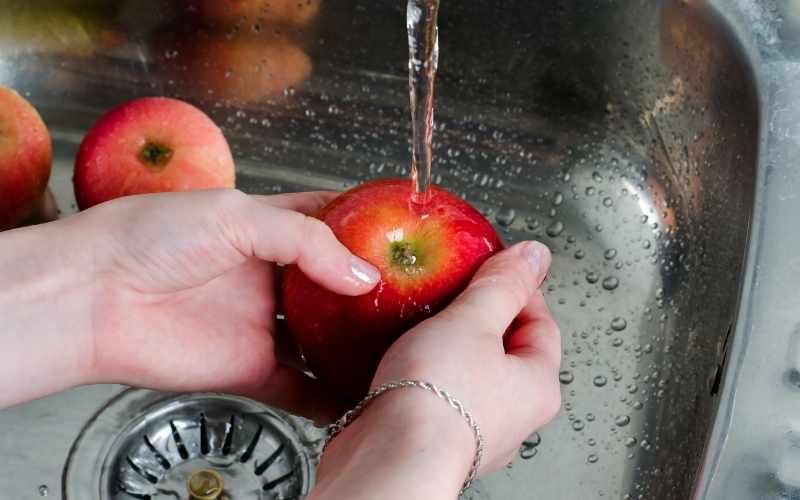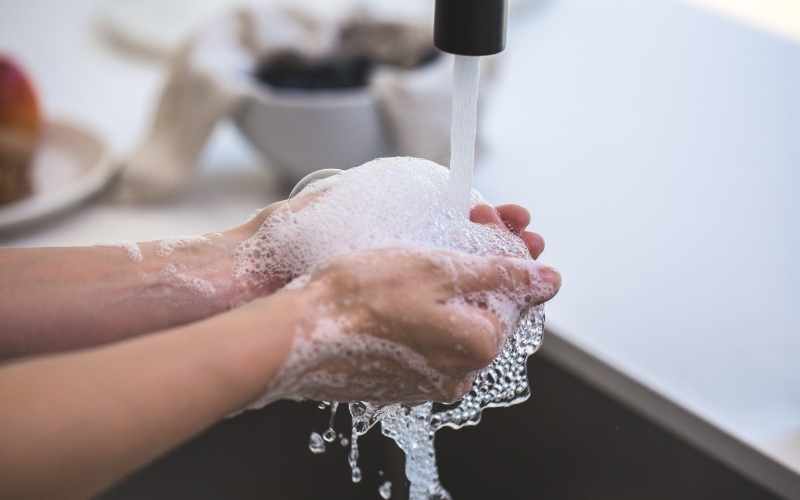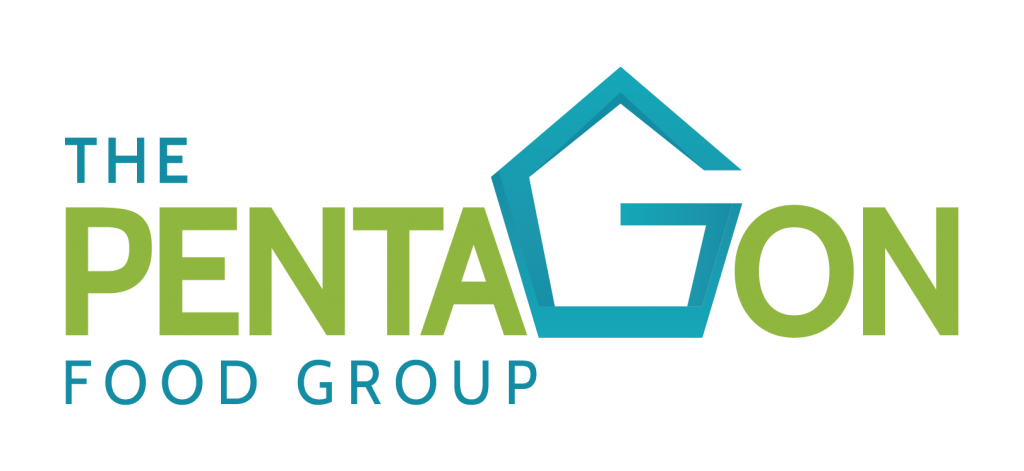Food Hygiene Requirements for restaurants food safety is a big deal, whether it is backyard barbecues, or big, fancy restaurants hundreds of people visit every day. The food industry is a big industry and the small details could be what makes the difference in customer’s decision to visit your restaurant or not. That’s why it’s important to know where things are supposed to be in order to make sure a restaurant is keeping itself up to date in terms of hygiene and cleanliness.
As a restaurateur or a certified food manager of your commercial kitchen, you know that it is important to monitor your food safety standards and adhere to good food handling practices. It’s vital that your team members know what personal hygiene requirements they need to maintain throughout the operation.
Food safety makes a great difference to your and other people’s lives. You can get food poisoning, diarrhea or many other diseases if the food wasn’t produced in accordance with state and federal standards. There are many regulations in different countries.
There is a wide range of food hygiene requirements specific to the food outlet industry, and the public have a right to expect food businesses to uphold these laws to protect public health and well-being. Failure to comply with the relevant regulations can result in heavy fines, or even imprisonment for more serious breaches.
What is Food Hygiene?
Food safety management requires a high level of sanitation. In order to minimize food borne illness, everything to do with the way food is prepared, processed, and kept. It includes a lot of various procedures that we have to follow to save ourselves from any kind of serious illness.
Whenever it comes to food and market-to-consumer operations, the general consensus is that food must be fully safe on the market, with the major concern being safe distribution and food preparation for the consumer.
Food has the potential to spread diseases from person to person and to serve as a fertile ground to bacteria that can cause food poisoning. In developed countries, food preparation regulations are complex, whereas in developing countries, there are minimal standards and less implementation of such standards.
Food safety control systems make certain that the food produced, handled and distribute is safe to eat. Consumers will not get food poisoning or other foodborne viruses as a result of this. If a restaurant shows that it is taking all reasonable precautions to comply with the standards, it should not be concerned about a local authority enforcement visit.
Elements To Maintain Food Hygiene And Safety For Restaurants

Food hygiene is a process of controlling the growth of micro-organisms in the food. Many people get sick because they do not follow the food hygiene requirements. Most of them are not aware of it till they fall sick. For example, many of us have a habit of keeping food on kitchen counters for long time. This will lead to fever, stomachache, nausea or even diarrhea depending on the type and number of micro-organisms present in the food.
Check also:How You Can Keep Your Commercial Kitchen Neat and Clean
Take precautions like wearing gloves, hairnets and caps, use protective coat and clean shoes before preparing food. All these requirements are done with the aim to keep away from personal hygiene issues that affect the quality of food served in restaurants. Every restaurant should follow these guidelines for giving out good quality food to customers and avoid bad publicity.
If you are an owner or manager of a restaurant, it is your duty to make sure that your employees follow proper food safety standards by providing training and education on this topic. It is also important to ensure that all your customers are following safety standards while handling raw foods at home as well as while cooking them.
Food Hygiene requirements for restaurants is important for staff to be aware of. Restaurants need to meet food hygiene requirements in order to remain open.
Food Safety in a Restaurant
Every restaurant owner’s goal is to provide safe food to their customers. While the responsibility of food safety is ultimately in the hands of the manager or owner, it should be a team effort and all employees must have a good understanding of food safety principles and their responsibilities.

In most places, each kitchen must have at least one staff with a recognized Food Safety Certificate. A food safety certificate verifies that a person has completed a recognized food safety training program.
Restaurants should ensure that, at a minimum:
- Every worker involved in the preparation, storage, or service of food, including the receiving, storage, preparation, cooking, serving, and display of food, has received proper monitoring and instruction in food hygiene.
- Adequate facilities are available for cleaning utensils and equipment used in connection with any operation within the restaurant;
- Adequate facilities are provided for washing hands; and
- Adequate measures are taken to prevent contamination by pests.
Food Hygiene in a Restaurant
The restaurant industry is one of the most diverse and expansive industries in the world. Each year, millions of people patronize their local restaurants. In order to ensure that the public health is protected, government agencies regulate the food service industry by establishing minimum food safety requirements for restaurants.
All states have a government agency responsible for regulating food service establishments. This agency enforces minimum standards for such things as personal hygiene, food storage, preparation and handling practices. In addition, the agency has the authority to close restaurants that present an imminent health hazard to consumers.

Restaurant owners are required to comply with minimum food safety standards established by this agency. Most states require that all employees obtain a food handler’s permit prior to working at a food service establishment. The permit requires that the employee successfully complete a food safety course approved by the agency. To maintain their food hygiene certificate, employees must also attend periodic training classes conducted by the agency or its representatives. The purpose of this training is to ensure that employees understand how to handle and prepare foods in a manner that reduces bacterial growth on foods and prevents contamination.
The food business operator shall comply with the following requirements:
- Ensuring that the food preparation area is kept clean and in good working order.
- Ensure that all food-handling equipment and utensils are kept clean and in good working order.
- Confirming that foodstuffs are stored in a manner and condition which will not result in contamination.
- Excluding live animals from any component of the food processing facility that handles ready-to-eat food.
- preventing, as far as is reasonably practicable, any pest from entering any part of the food premises from which they could gain access to food or to any equipment or utensil used in handling food.
- Keeping all drains on the premises clear and free from obstruction and discharging them into a sewer maintained by a public authority or into a septic tank approved by that authority.
- Providing adequate washing facilities for personnel employed to handle food, including hot and cold running water, liquid soap or detergent, and single service towels or warm air dryers.
- Providing adequate toilet facilities for personnel employed to handle food.
- Providing effective garbage storage arrangements which prevent the harborage of pests on the food premises.
Personal Hygiene in a Restaurant
Food industries are the largest employers in the world and food service industry is a sub sector of it. The food and beverage industry has grown tremendously over the years, which give rise to employment opportunities for many people.
Workers in this industry are often directly involved in handling food that is served to the customers. Because of this, it is essential that every worker who handles or serves food to the public must be trained to practice good personal hygiene in order to reduce the risk of exposing customers to bacteria and other pathogens that can cause food borne diseases.

Food handlers working in restaurants, fast food outlets and other similar establishments should practice good personal hygiene at all times since they handle the food served to consumers. The food handled by these workers can either be contaminated or retain their contaminants if proper personal hygiene is not practiced.
Food handlers must keep their hands clean and wash their hands at all times when handling food. This means
- Using water and soap to wash their hands:
- on starting work
- using the toilet
- returning from a break
- before handling cooked or ready-to-eat foods
- After handling raw foods
- After smoking, eating, drinking or using tobacco products
- If touching hair or body parts like the nose, ears or wounds
- When wetting your hands in between to prevent them from drying out
- Food handlers must also keep their hair clean and neatly groomed. Hair should be tied up and covered when working in the kitchen.
- They should also not scratch their bodies while working.
- If a food handler has cuts or sores, he must wear a waterproof dressing which covers the cut or sore completely.
- Food handlers should avoid Coughing or sneezing in food prep areas.
- Use of tobacco products are strictly prohibited in food serving areas.
- In food preparation areas, food workers should wear hair caps.
- Use of gloves, especially on serving time.
- Should wear neat and clean uniform all the time during duty hours.
Premises Hygiene
Restaurants are places where food is prepared for serving to customers. They can be large or small, and may be part of other premises such as hotels, public houses, cafes, pubs and bars.
The premises hygiene is of utmost importance to the food business. The health of a customer may be affected by the cleanliness of the premises. The premises should be suitable for the purpose for which it is being used.

The operators of a food premises are responsible for ensuring that the premises and its surroundings are maintained in such a condition as to prevent any food from becoming contaminated.
- The premises must be kept clean and free from vermin.
- All parts of the premises (including floors, walls, ceilings, doors, windows, ventilation systems and equipment) should be designed and constructed in such a way that these can be kept clean.
- Any unnecessary ledges or fittings should be avoided, and all fittings should be easily accessible for cleaning purposes.
- There must be an adequate supply of hot and cold running water and hand washing facilities.
- Food preparation surfaces must be separate from surfaces used for cleaning and disposal.
- There should be no obvious signs of pests.
- Any areas of the premises used for storing equipment not directly related to food preparation should be separated from those areas used for preparing food by physical barriers and by time. For example, an area where cleaning chemicals are stored should not be used for the preparation of food at any time, and the area where dirty dishes are stored before washing should be separated from those areas used for preparing food.
- All storage areas other than chilled or frozen storerooms or cold rooms must have adequate ventilation but no direct openings to the outside which could allow entry of pests.
- Chilled or frozen storerooms or cold rooms must have adequate ventilation with openings into an enclosed vermin-proof courtyard or vermin-proof shaft way draining directly to the outside.
Summing Up
The food industry can be incredibly lucrative and even relaxing, but it is also one of the more difficult industries that you can open a business in. Not complying with food hygiene laws could result in severe penalties, especially if your establishment is found to have harmed guests. It is important that you are familiar with food safety procedures so that you can guarantee hygienic practices in your facility.
Food hygiene laws are very important in today’s society. It helps to ensure that the public is able to enjoy food facilities and remember them favorably. The restaurants that understand what their responsibility lies in even though they may be small individual business owners, is one which will prosper, thank you for reading this helpful guide.
Read also: Budgeting Tips for a Takeaway Restaurant
Are you looking for a Free Consultation for Food Services Distribution? Contact Us!






